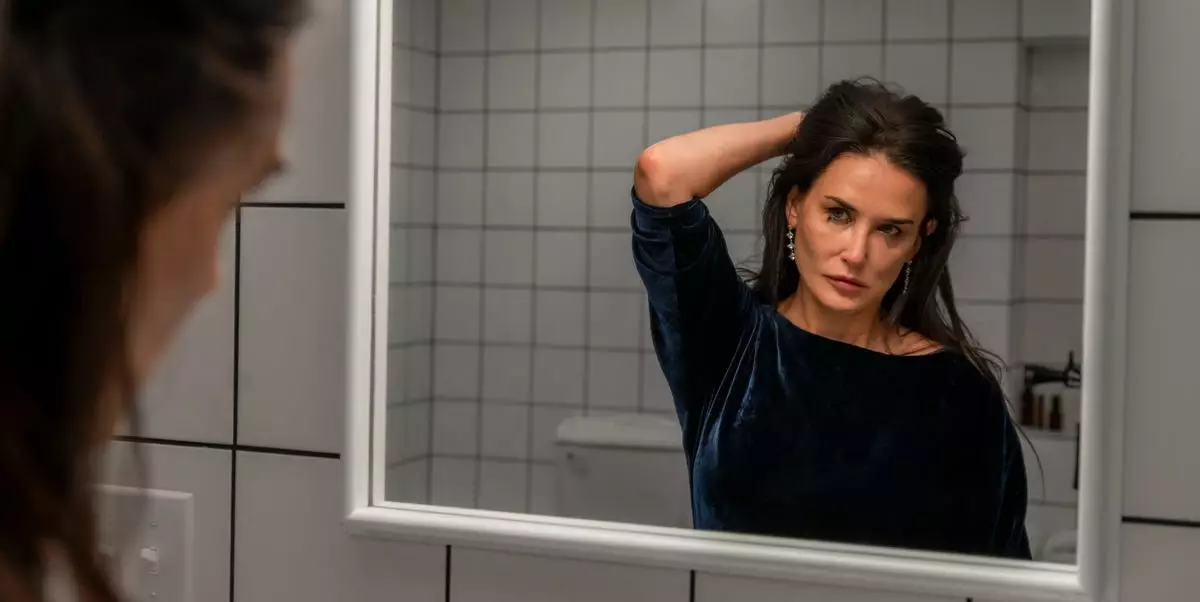“The Substance,” which is taking theaters by storm, is not merely a film but a daring exploration of the societal implications of beauty, aging, and identity. Directed by French filmmaker Coralie Fargeat and starring the seasoned Demi Moore, this body horror film confronts viewers with uncomfortable truths about the pressures of Hollywood. Its explicit imagery and unsettling themes may compel some audiences to favor the comfort of their own homes for viewing, allowing them to take breaks from the intensity of the narrative.
The film follows Elisabeth Sparkle (Demi Moore), an aging actress who yearns for her lost youth. In a desperate bid to reclaim her youthful appearance, she turns to a black-market substance that claims to reverse the aging process. This risky decision leads to unexpected and harrowing consequences, including a physical and psychological clash between her current self and younger incarnation, portrayed by Margaret Qualley. The duality of her existence underscores the relentless competition that women face in an industry often plagued by ageism and sexism.
“The Substance” serves as an incisive commentary on the often brutal realities confronting female actors in Hollywood. Through Elisabeth’s ordeal, the film critiques a culture that venerates youth while undervaluing the experiences and talents of older women. This narrative thread not only highlights the personal struggle of its protagonist but also casts a wider net over how society perceives aging and beauty. The film’s unflinching examination of these themes elevates it beyond mere shock value, pushing audiences to engage in deeper conversations about societal norms.
The film’s plot thickens with the twist that leads to a bizarre contract between the older and younger versions of Elisabeth, who must swap places every week. This concept of duality amplifies the horror elements not just as a genre trope, but as a metaphor for the internal conflicts women contend with as they navigate societal expectations. Viewers find themselves rooting for both sides of Elisabeth, torn between empathy for her struggles against ageism and horror at the lengths she will go to preserve her youth.
Released in theaters on September 20, “The Substance” is also set to open in France on November 6. However, for those eager to stream the film, the timeline remains uncertain, as Mubi holds exclusive rights. While Mubi is recognized for promoting experimental films, the subscription model may present barriers for some potential viewers. At approximately $7.99 a month, Mubi offers a seven-day free trial, allowing eager audiences to test their interest ahead of a potential streaming debut. This strategy encourages viewers to engage with the art house atmosphere Mubi cultivates, yet accessibility remains a critical consideration for mainstream acceptance.
“The Substance” is far more than just a film; it acts as a mirror reflecting the complexities of femininity, youth, and humanity’s often turbulent relationship with time. As viewers navigate through its elaborate narrative and visceral visuals, they are invited to ponder not just the story on screen, but the implications it bears for society as a whole. Whether viewed in theaters or at home, the experience is undeniably meant to provoke thought, discussion, and perhaps, discomfort—a testament to the courage of filmmakers willing to explore the darker facets of human existence.

